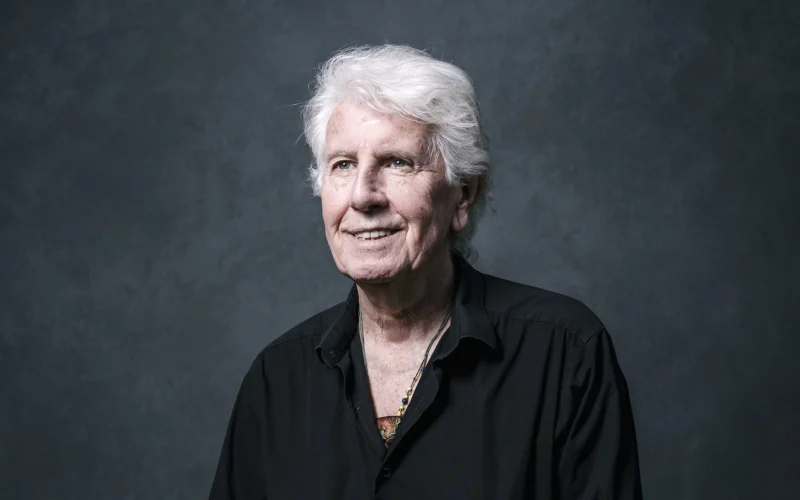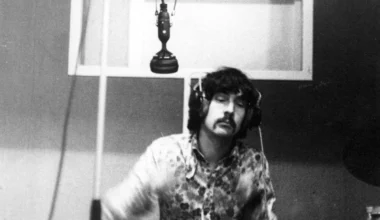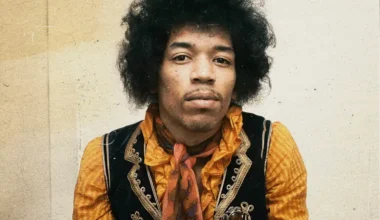Graham Nash is a master of the song, no matter the period or place he finds himself in. He was the main man behind Manchester Merseybeat mainstays The Hollies. He also became one of the counterculture’s most important songwriters.
In a nutshell, Nash has led an extraordinary life. His biography brims with amazing creative high points, such as his membership in CSNY, the iconic hippie band that originated with the three CSN. These three master songwriters had left their previous bands for various reasons. Nevertheless, the group was dedicated to creating an authentic folk-rock sound. At last, they had their creative impulses appreciated, even with the complexity of their recent pasts.
Even though Graham Nash enjoys high regard as a singer-songwriter in his own right, it’s without a doubt that Déjà Vu from 1970 is the album’s high point. It’s CSNY’s masterwork and the perfect union of four of the greatest composers of the past forty years. With songs like “Woodstock,” a cover of Nash’s former partner Joni Mitchell, “Teach Your Children,” and “Our House,” the last two of which were his original compositions, it encapsulated the spirit of a time when change was occurring. After all, the times turned out to be far worse than what the counterculture’s founding members had imagined. They came together just three years earlier.
When Nash left The Hollies in 1968, his career as a musician took a huge leap forward. Part of it was the spirit of the times, but a large part of it can be traced back to his burning desire to realize his creative vision outside of the boundaries of his former group. Innovation was pervasive and creativity was at an all-time high in the US and the UK. Within those ensuing ten years, music evolved to an unprecedented degree.
The Beatles were the biggest act of the decade. So, it stands to reason that the staggering amount of innovation they produced in the latter part of their career affected him. This is ironic because, on the same day as their Liverpudlian peers, The Hollies released a cover of George Harrison’s “If I Needed Someone” from Rubber Soul, sparking a feud between Nash and the group. This understandably incensed the normally composed Beatles guitarist. He called it “rubbish” in the press a few days later and claimed they had “spoilt it.”
Graham Nash retaliated just one week after Harrison’s indignant remarks were made public. He expressed his dissatisfaction with the same publication that had featured an interview with “The Quiet One” interpreting everything The Beatles did as gospel. This is noteworthy because, years later, Nash developed a strong passion for the leading tastemakers of the time. Age and hindsight have probably contributed to this change in thinking.
He has even acknowledged that one of the songs that most influenced his approach to songwriting was the psychedelic masterpiece “Tomorrow Never Knows” from the Rubber Soul follow-up album Revolver. At this point, the Fab Four began to push the boundaries in terms of songwriting, music, and recording techniques. They also began to weaponize the studio as an instrument.
In an interview with Rolling Stone in 2018, Nash mentioned the pivotal final track of Revolver as one of the five songs that shaped his career as a songwriter. He called “Tomorrow Never Knows” “insane” and then went on to explain how it gave him and the songwriters of his generation new opportunities.
As Nash put it: “What a crazy sound.” What genius. You have to realize that a thousand songs can be stored on your phone these days. But the only machines available back then were 4-track and possibly 8-track ones. For me as a musician, hearing that song unlocked a massive portal. I thought, “Whoa, you really can do anything! It’s not necessary to follow a set formula when writing and recording music”. Anywhere is an option for you to go. Then observe what the seagulls and backward tapes are doing. It sounds amazing, like throngs of birds soaring everywhere. That’s fantastic!
Ironically, without The Beatles’ contributions, there might not have been any CSNY as we know and love them. In the end, their work’s power was undeniable, even by the most ardent critic.








